Growing Wheat
All Growing Wheat Content
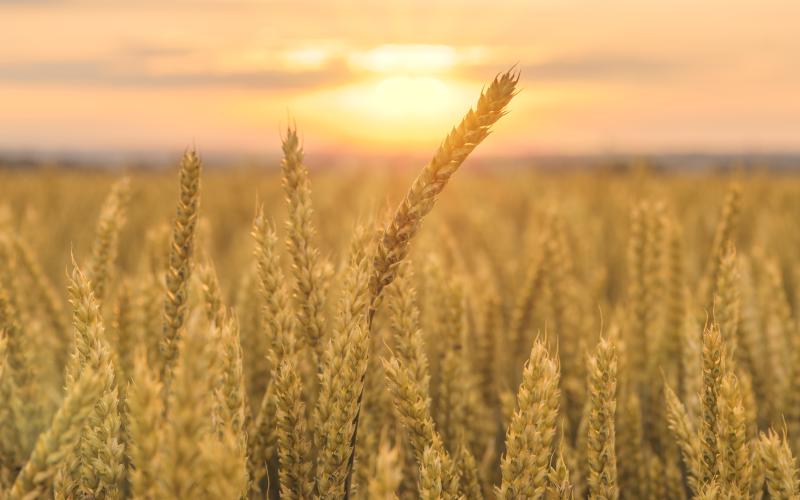
Looking Back: A History of Wheat Production in SD
In spite of the open winter and some of the worst drought conditions in history, South Dakota ended up with a very good wheat crop in terms of yield and quality in 2012. The winter wheat yields averaged 50 bushels to the acre; second highest average yield in SD recorded history.
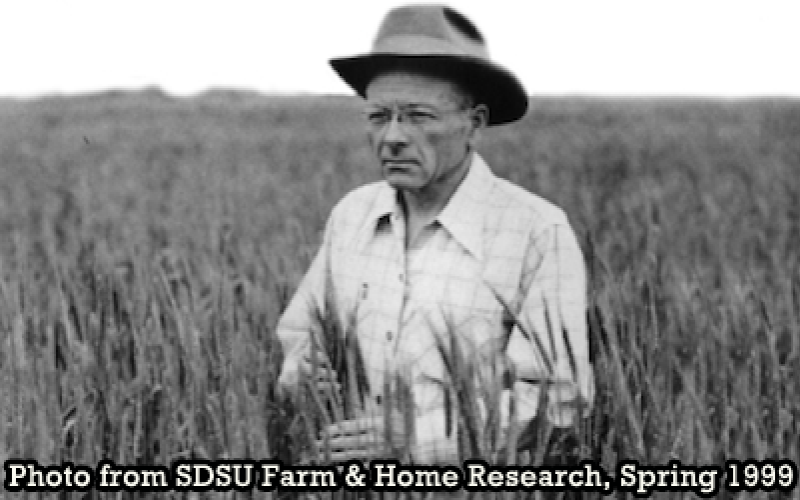
McFadden and Borlaug: Pioneering Rust-Resistant Wheat
During a brief period of time in the Dakota Territory in the late 1800’s, wheat acreage increased from just over 100,000 acres to well over a million acres. During one year in the height of this heyday, 1897, it has been stated that two-thirds of the world’s wheat was shipped from present-day Eureka, SD, and wagons bearing the crop rolled in from as far as 75 miles away.
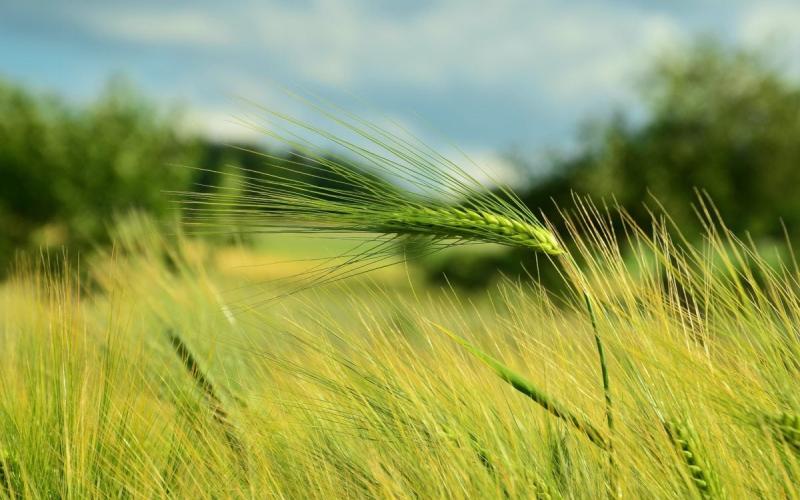
Wheat Seed Testing, Pure Live Seed, and Seeding Rates
To legally sell wheat seed in South Dakota, a standard test—following Association of Official Seed Analysts (AOSA) seed testing protocols, for germination, purity, and noxious weeds—is required. This standard analysis, plus a seed count provides information needed to determine the seeding rate.
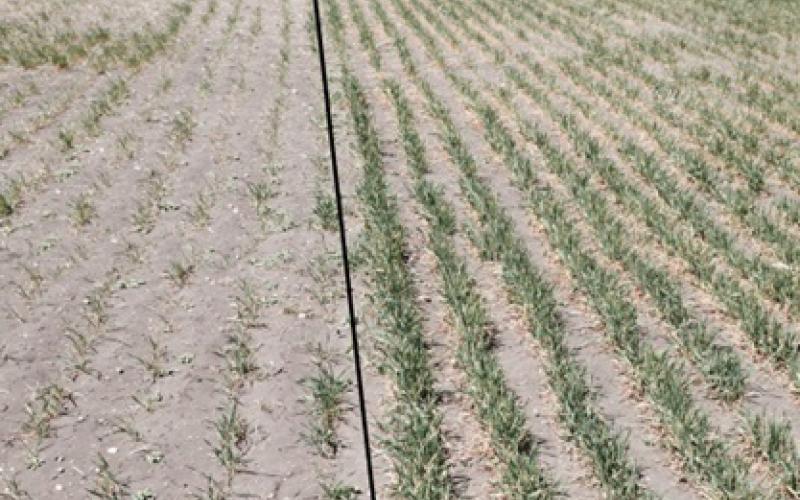
The Difficulty in Winter Wheat Stand Assessments
From freak snow storms to sub-zero temperatures and on to a recent lack of moisture and a cool spring, the climate in South Dakota has left many winter wheat growers and agronomists wondering about the health of their stands.
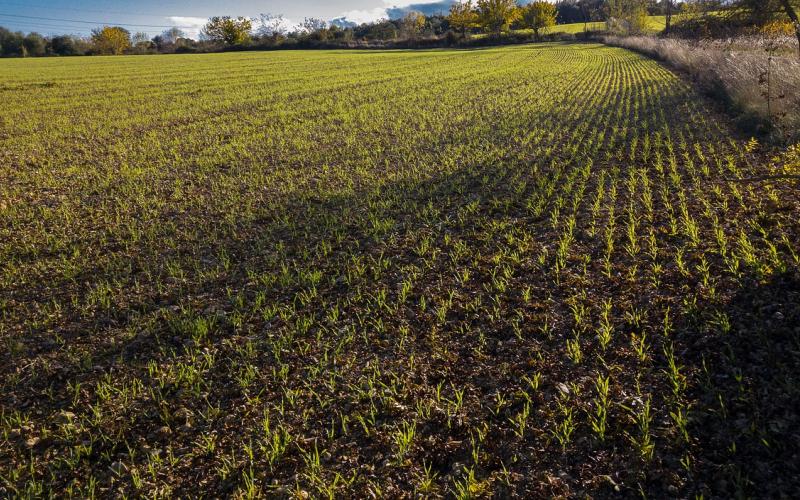
Starter Fertilizer in Winter Wheat
Winter wheat planting season is soon at hand. Questions often abound on the issue of fertilization rates, timing and placement. Over the years, a lot of research has focused on starter fertilizers or split-applying nitrogen (N) and other nutrients. In general, phosphorus placed with the seed has been shown to increase tillering and total grain yield. Nitrogen is more uncertain, due to the possibility of salt burn and the associated yield losses.
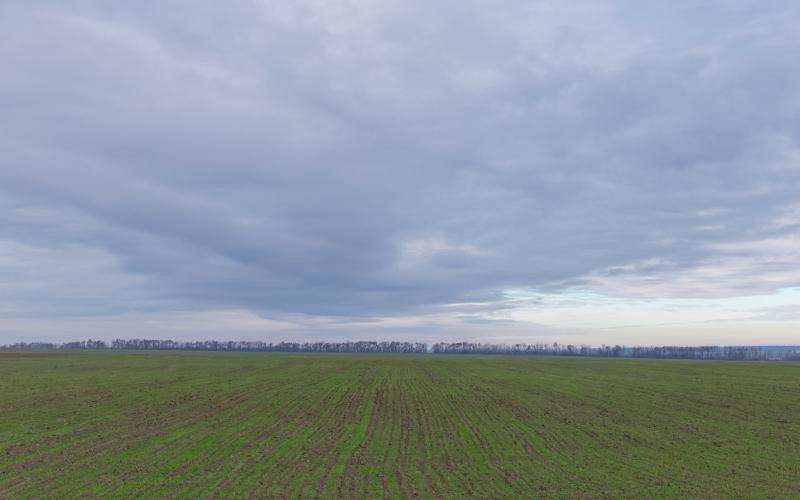
Winter Survival and Spring Stand Counts in Winter Wheat
Every winter, growers are curious if their wheat field will survive the winter. Not enough snow cover during the coldest days, spring flooding, and ice injury are the main reasons for plants to die. The only way to get a true assessment of winter survival is to scout the field in the spring.
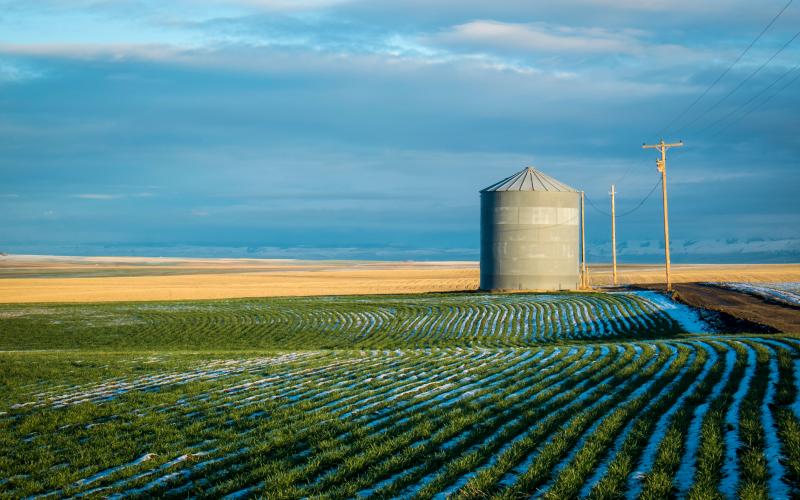
Climate Adaptability of Winter Wheat
For most of us, wheat is wheat. However, there is a distinct difference between spring and winter wheat, even though the vegetative characteristics of these two wheat types are very similar.
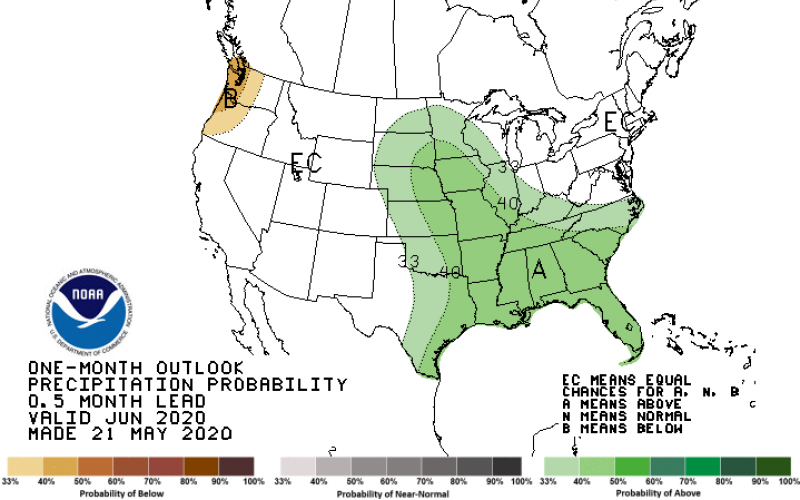
Summer 2020 Climate & Drought Outlook
August 12, 2020
With alternating cool and warm weather patterns throughout the last few months and the summer season ahead, temperature continues to be a challenge for climate forecasters in South Dakota.